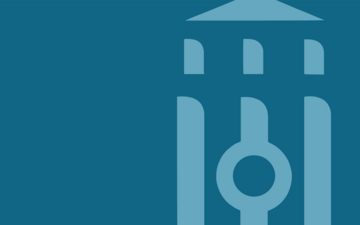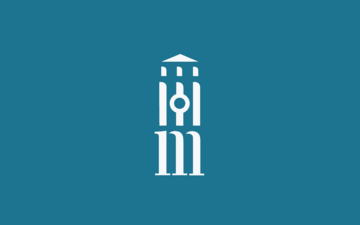Q&A with "Bridging State and Civil Society" Author Suzanne Levi-Sanchez

This is a guest blog featuring author Suzanne Levi-Sanchez, author of Bridging State and Civil Society: Informal Organizations in Tajik/Afghan Badakhshan from the University of Michigan Press. This volume is available for purchase in hardcover and accessible ebook formats.
CW: Mentions of sexual assault
Where did inspiration for Bridging State and Civil Society: Informal Organizations in Tajik/Afghan Badakhshan come from?
I guess it was less ‘inspiration’ and more time in place. In 2009, UCLA and Professor Mark Kleiman funded fieldwork in Afghanistan. My research at that time focused on counternarcotics policy within counterinsurgency in Afghanistan. Soon after, the University of Delaware awarded me funding for my research project studying the increase of cross-border security on positive/negative cooperation along the Tajik/Afghan border. These projects led me to then focus on how local leaders and their associated identity groups along the border interacted with the state. This became my dissertation and my first book with Routledge, The Afghan-Central Asia Borderland: The State and Local Leaders .
By 2013, when I had finished my dissertation and received funding from an IREX award and the University of Illinois to do more fieldwork, my research had evolved from borders and leaders to civil society and local organizations. By this time I had worked for and with four organizations and realized that the interface between these organizations and local informal organizations provided the communities with both access and opportunity for change. I spent the next two years exploring local organizations and their leaders on both sides of the border to see what, more specifically, their role was both locally and in the functioning of the state in Tajik/Afghan Badakhshan.
So, all of that is a long-winded way of saying, there really wasn’t an “inspiration,” but more of an organic unfolding of the research over time. In the end, it was the people living in the region who took the time to teach me about their lives and the challenges they overcome on a daily basis.
Your book draws from six years of doing ethnographic fieldwork, interviewing informal leaders, state officials, civil society leaders, and activists, as well as doing focus group discussions on both sides of the Tajik/Afghan border in Badakhshan. Were there particular challenges you faced in doing this fieldwork?
I faced many challenges doing this fieldwork.
I almost died of septicemia in a remote village in Afghanistan. Attempted sexual assaults were numerous; luckily, I escaped each time. I was spied on, detained, interrogated, and accused of being a spy. I witnessed violence and lost friends. I brought my daughter with me for three months and the Tajik security sent a local woman to spy on her and elicit information. An international NGO (not to be named) that was housing me and my daughter believed a local rumor from this same woman, who started a rumor that I was there with a falsified passport and visa and kicked me and my daughter out of our housing in the dead of winter while we were both recovering from quite serious food poisoning.
Getting visas and permission to do the fieldwork locally was an ongoing process and one that was constantly an issue throughout the fieldwork. The Tajik government as well as the Afghan government had many restrictions on granting visas over longer periods of time. It seemed I was always under threat of being thrown out of the country for an impending expiration date of a visa.
I also encountered some challenges with some officials from the US Embassy in Tajikistan, particularly from 2010-2011. One security officer illegally seized my identification and then spread rumors that I had gone “rogue,” whatever that means, and that I fabricated information. It took a while to overcome his rumors and his insistence on blocking access to numerous international organizations for interviews. In another instance, a former DEA agent working for a larger IGO tried to show me allegedly classified information, and when I refused he proceeded to block access for me to that organization and work with the security officer who had spread rumors about me. In the end, I just kept doing the research and worked to rebuild my reputation.
Another challenge was that there were many local factions within the region, and I stepped on toes numerous times that I didn’t know existed as an outsider. I made many mistakes, learned from them, and then made new mistakes, which sometimes caused fairly serious problems for me.
Out of all of the challenges I faced while overseas, the most challenging part of the fieldwork was witnessing some of the pain and suffering of those who didn’t have enough food or water, fuel for heat, access to healthcare, or was struggling with addiction or hiding from the government. Over the years I have attempted to get funding for a solar thermal electric cookstove for Wakhi women, drug demand re-education treatment in Khorog (including access to methadone and subaxone), starting a school based on the Khorog English Preparatory Program for post-graduate english study, education around human trafficking, services for the mentally ill and disabled, and funding for ecotourism and education programs in Afghanistan. I made lifelong friends in the region and will always feel deeply connected even if unable (due to health issues) to travel there anymore.
What sort of syllabus might you expect to see your book on? How would it be useful to potential instructors and students alike?
This book would be useful for a number of different fields and areas of the world. It could be used for undergraduate, graduate, and Ph. D. level courses. It would also be of use for professional military educational institutions that are focusing on South and Central Asia and China.
Types of courses in which it might prove useful include:
- Comparative politics as an example of qualitative work and case studies and why they are important for the field to enhance understanding of how things work on the ground. It also provides a detailed set of case studies using comparative analysis along a border that bisects two states with similar ethno-religious and linguistic groups, but with different state governance systems. It also provides insights into the workings of local governance and leadership, civil society, and informal/formal organizations and institutions using ethnographic approaches to the research.
- Area studies including Central Asia, Afghanistan, the Persianate regions, and border studies.
- International Relations in terms of great power politics, borders, intrastate and interstate conflict, and transnational security challenges or cooperation.
- Security studies focusing on trafficking, terrorism, and state stability.
- Peace and Conflict Studies courses examining conflict termination, the role of civil society in peace processes.
- Leadership studies that examine how social entrepreneurs or community leaders and their organizations function in challenging or conflict-prone regions.
- Gender Studies courses including the importance of informal organizations for women in states that are patriarchal, oppressive, and/or have limited to no inclusion of women in formal roles of governance.
What do you hope readers take away from reading your book?
Hopefully, readers will gain a better understanding of how vital local/informal organizations are for the functioning of the state and for access of citizens in Tajik/Afghan Badakhshan. In areas of the world where these local leaders have been either removed, with the goal of state institutionalization regardless of their impact on the community, or killed in the name of security, situations have devolved into bloody civil conflicts (as has been the case in Libya, Syria, Mexico, and Iraq, to name a few). As various local leaders who partnered with governments or others were killed or removed from power, competition for power ballooned, and chaos reigned.
While this requires further research, my book also points to the stability that local informal governance provides. Even in these conflict-ridden areas, some of the networks have survived and are still working on providing basic necessities and cooperating with local families and communities to provide services that otherwise should be provided by the state. Informal organizations in Tajik/Afghan Badakhshan remain vibrant despite the Taliban takeover and despite the oppressive Tajik authoritarian leadership. They are the primary way people access services, help each other, and have agency in otherwise untenable situations.
My hope is that readers will read the book and come away with three main questions:
- What did the research in this book highlight that provided insights and questions for future research?
- How did the methodologies used in this research uncover often hidden relationships that are important for the functioning of a state?
- What are other ways researchers can explore how marginalized regions find ways to assert agency despite having limited state capacity or limited voice in state governance?
Whether an experienced researcher or scholar, or a student just starting out, these questions are key to a deeper and more nuanced understanding of how things work on the ground, as opposed to how we think they should work.




